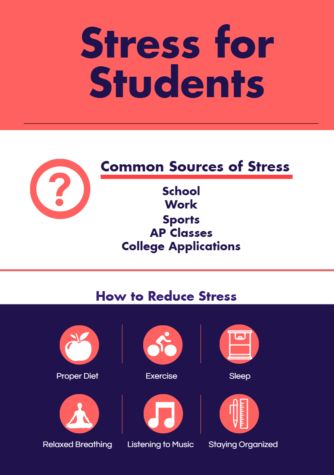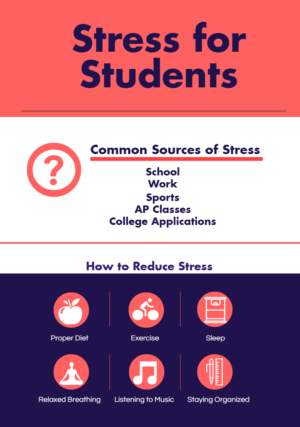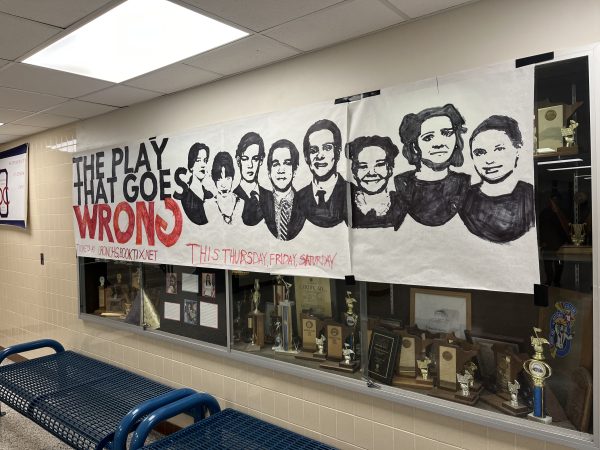Handling Stress
For most students, managing eight hours of school, on top of homework, sports, extracurricular activities and jobs can be extremely stressful and exhausting. Teenagers are supposed to be getting at least nine hours of sleep per night but on average, most high school students are getting about seven, according to NationWide Children’s Hospital. This is two hours less than needed, which adds up to a total of 10 hours of sleep per week that students are deprived of.
AP classes can be more stressful, but I also know that it’s preparing me well for the classes in college. Most of the time I feel it’s very worth it
— Sophia Vaughan
Orono High school has been ranked second in the state of Minnesota (and #210 nationwide) with a score of 72.6/100 for college readiness, with an 81 percent participation rate in AP classes, according to U.S. News and World Report. AP classes are known to be one of the biggest stressors among OHS students. The workload is much more intensive and resembles how college classes would operate.
“AP classes can be more stressful, but I also know that it’s preparing me well for the classes in college. Most of the time I feel it’s very worth it,” senior Sophia Vaughan said.
Since Orono is known to be one of the best high schools to prep students for what life is like in college a lot of students feel that sometimes the pressure can be too much.
“Honestly I have felt stress pretty much everyday since freshman year, of course not over breaks and summer, but every school day there is at least one thing that makes me freak out a little,” senior Megan Larson said.
Another one of students’ biggest stressors is standardized testing. Most colleges require students to have either an ACT score or an SAT score in order to receive admissions to that college. A few however, are now opting to be test optional. Test optional schools do not require an ACT or SAT score (if you do submit it it can’t reduce your chances of admissions). Test optional schools have the same admission requirements as every other school, besides the testing scores.
“I would say my junior year was probably the hardest for me. Keeping up grades and trying to study for the ACT was a lot of work.” said senior Alli Johnson.
Most students interviewed also said that when they get stressed, it affects their sleep. Not only are the students getting an average of only seven hours per night, but they are not sleeping well in those seven hours. This will then lead to some sleepy high schoolers who aren’t performing to their fullest potential.
Students express their frustration in many different ways: some cry, get angry, get frustrated with others easier, sleep, don’t sleep, lose patience, or even pretend that everything is okay.
“I have an extremely short patience level with others when I get stressed out,” sophomore Holden Scharf said.
Though high school can be an extremely stressful time there are ways to avoid chronic stress throughout the school year. Here are some suggestions:
- Put your calendar or planner to use! Writing everything down can help you stay organized. You will also be less likely to forget to finish an assignment if you have it written down right in front of you.
- Make a study plan. If you have sports or work on certain days plan to study a different night or over the weekend.
- Get ahead. If you have a big test on Tuesday, study over the weekend.
- Use your time wisely. Spartan hours are there for you to use. If you have nothing to do then get ahead on some homework or check to make sure nothing is missing.
- Talk to you teachers. They are there to help!
- Create a study group. Big biology test coming up? Get together with some students in the same class and make a study guide together. You can meet before or after school, or even during Spartan Hour.
- Make a study guide. Writing or typing things down will help you to start learning all on its own, and that’s before you even start studying!

My name is Ellie Fasbender, I have been a journalism student for two years now. This is my first year working on the Spartan Speaks, I am the online editor...
















